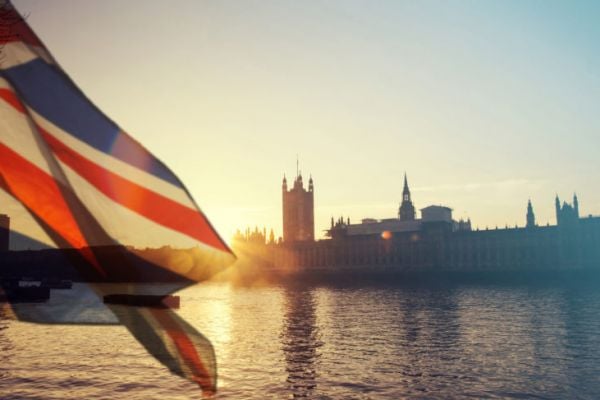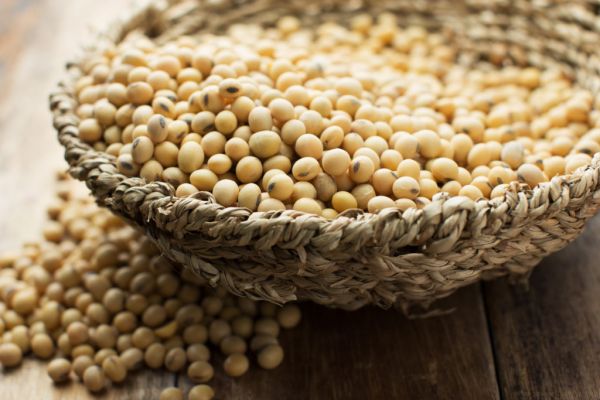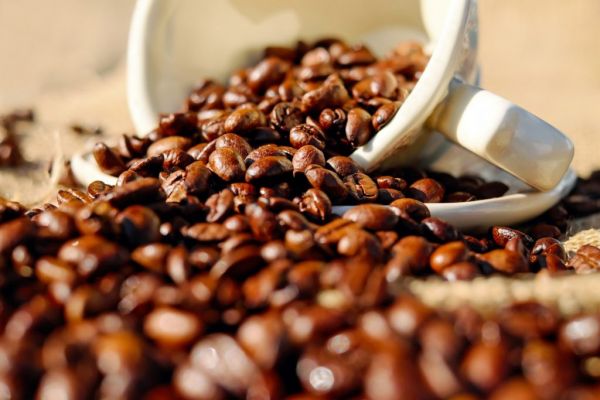Leaving the European Union without a deal at the end of this month will force UK businesses to navigate an unprecedented set of challenges from potential blockages at ports to the introduction of paperwork and tariffs.
More than 10,000 trucks a day pass through the port of Dover, Britain's most important gateway to Europe, carrying £119 billion (€137.3 billion) worth of trade a year.
The potential for gridlock has forced companies to use alternative ports, reserve air cargo capacity and stockpile parts.
This is what companies have said about the threat and actions taken to mitigate the impact.
Retailers
For British retailers, 31 October is about the worst possible timing for Brexit, coming just before the Christmas trading period which means warehouses are already packed with products.
Although supermarket groups, such as Tesco and Sainsbury's, can build up stocks of non-perishable items, in reality there is limited capacity in supply chains to make that possible.
A hard Brexit will affect suppliers of some fresh foods, such as lettuces, tomatoes, citrus and soft fruits which come from southern Europe. Shortages and price inflation could ensue.
While the British government has set a temporary tariff regime that will make 88% of total imports by value eligible for levy free access, goods such as ceramics, cheese and clothing will face some tariffs.
Farming
The National Farmers Union has described a no-deal Brexit as 'catastrophic for British farming'.
The EU is set to impose tariffs which could cripple trade in some products.
A 46% tariff on lamb, for example, would make British exports uncompetitive in key markets such as France.
Delays at the border could also make trade in perishable goods such as fresh produce unviable.
Fishing
If Britain leaves the EU without a deal it becomes an independent coastal state.
This means it will regain control over its waters but policing will be difficult given there will only be a few vessels patrolling a space several times the size of the surface area of the United Kingdom.
Some seafood exports to the EU will also face tariffs while there is concern about the impact of customs checks given many products are perishable.
Carmakers
Britain's car industry, the country's biggest exporter of goods, faces tariffs on vehicles, engines and components, new bureaucracy and delays at ports which could halt output at factories reliant on just-in-time delivery of parts.
BMW, Toyota and Jaguar Land Rover will close factories for up to a week on or after 31 October in case of any disruption.
The interconnected nature of the industry means the impact would be felt across the continent including at the likes of Ford's Cologne factory in Germany where roughly one in three cars is exported to Britain.
Volkswagen has increased stockpiles of cars in Britain. The German group is the market leader in Britain, Europe's second-largest car market, notching up nearly half a million sales, almost all of which are imported.
Many automakers use British facilities as export hubs to the rest of the continent and do not make the same models at other factories in the EU, meaning they cannot quickly source or move output elsewhere.
In the longer-term, no-deal Brexit tariffs of 10% on vehicles would be unsustainable for Nissan in Europe, where it runs Britain's biggest car factory.
"We are asking not to have tariffs being applied in a no-deal scenario because otherwise the tariffs won't be sustainable for us," the firm's European Chairman Gianluca de Ficchy said, referring to possible World Trade Organization tariffs.
Pharmaceuticals
The risk of drug shortages has been among the biggest worries associated with a disorderly Brexit, with 45 million patient packs going from the United Kingdom to other European countries each month, while another 37 million flow in the opposite direction, industry figures show.
Major drugmakers such as Bayer, Novartis , AstraZeneca and GSK have all taken contingency steps to secure their supply.
Novo Nordisk and Sanofi, Europe's largest diabetes drug companies, for instance, have spent millions of pounds stockpiling insulin in Britain and are building new shipping and air freight routes.
Some drugs, such as Bayer’s radiopharmaceutical Xofigo against prostate cancer, would perish if stockpiled. Bayer is working on simplified customs arrangements with the British authorities.
The government has also signed deals with ferry companies worth 86.6 million pounds to ensure the continued supply of medicines, and created a "Support Unit" to help suppliers of medical goods prepare and have customs paperwork in place.
Airlines
Britain and the EU have put measures in place to ensure that flights can continue in any exit scenario.
Airlines will also have to adjust to rules that mean those not majority owned by EU nationals face the threat of losing their right to fly within the bloc.
Most major European airlines say they either comply with the rules or will curb the voting rights of non-EU shareholders in order to remain aloft.
News by Reuters, edited by ESM. Click subscribe to sign up to ESM: European Supermarket Magazine.














